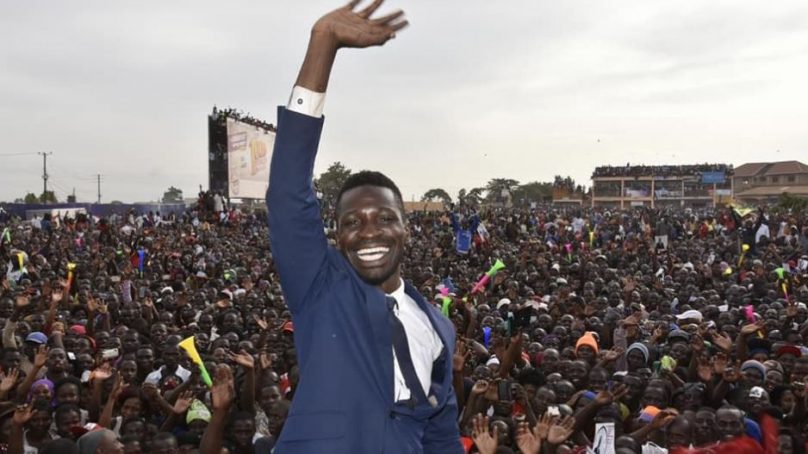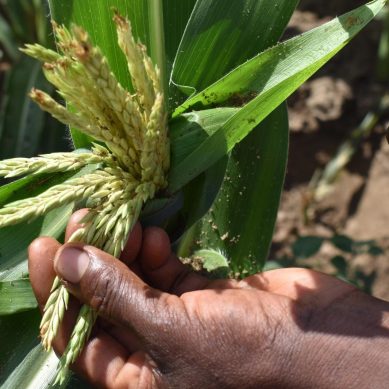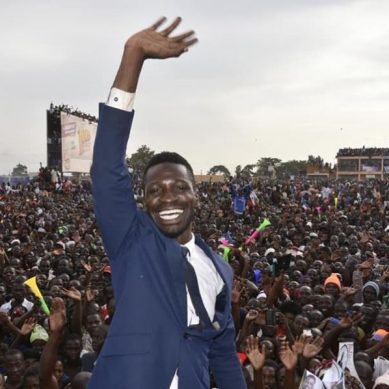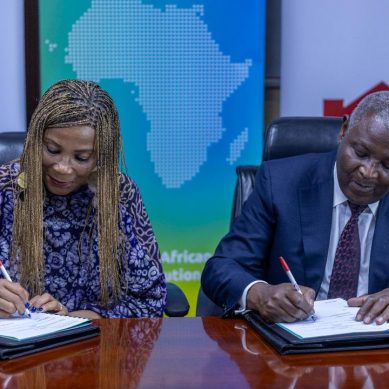
For virtually all his post-Tito Okello period, President Tibuhaburwa Museveni has dominated every sphere of human life in Uganda: education, energy, health, infrastructure and environment. He has transcended the boundary between the 20th century and the 21st century and boundary between the old and new millennium.
It is impossible to extricate him from any crisis, failure and success stories in any sphere of life in Uganda or in any human enterprise.
Everything has begun with him and ended with him. His centrality in the fear and silence industry in the country is recognised even by the simplest mind. Some Ugandans are awed by him while others detest him. Even some greatest brains and top leaders in the country have cast him as a god, with their own thinking and actions beginning with him and ending with him.
For President Tibuhaburwa Museveni himself Uganda begins in 1986 when he captured the instruments of power through the barrel of the gun. Indeed, he has endeavoured to rewrite the history of Uganda in which past leaders, whom he once referred to as swine, are excluded as if they never existed or contributed to the social, economic or political changes in the country – positive or negative.
In his social, political, economic and military language, his public interactions with Ugandans and others, he prefers the possessive adjective my thnto the possessive adjectives our or their or his or hers or its. Consequently, he has manifested as a highly possessive person and the only thinker even when he is interacting with the greatest of our minds. He refers to Uganda as my country; to Uganda’s oil as my oil; to Uganda’s Army as my army; to Uganda’s economy as my economy; and to Uganda’s gold as my gold. To the President, as far as ownership is concerned, he owns then others follow, if at all. Recently he riled the world when he referred to Indian Ocean as my Ocean.
Simply put, the President is a phenomenon, although some of his enthusiasts and idolisers would be tempted to say “Yoweri Tibuhaburwa Museveni is an idea. That is why some talk of Musevenism to advance it as a thought or system of thoughts. However, the resident has shifted from one idea to another, sometimes swiftly, when he has found one idea can no long serve his choices or interests, which has cast him as very contradictory, but ensured that he survived politically and is perceived as a mysterious man.
The president has ended up personalising, not only his ruling party, but the entire social, political and economic spectra of Uganda. There are claims that most economic enterprises in Uganda are his belong to different members of his family or extended family. Many critical observers and thinkers interpret his recent electoral clarion call “protecting our gains” to mean protecting the gains of his family and extended family within his small enclave called Uganda, which is still trapped in the abyss of underdevelopment, environmental decay and collapse, poverty and debt, 40 years into his reign.
A person as an idea
A person becomes an idea when their thoughts, values or legacy live on through others, even after they’ are gone. Influential people in history are more than just individuals. They are concepts that shape society.
H.F. Verwoerd introduced what was called Grand Apartheid, characterised by small pockets of land called homelands outside of which people of African descent were not allowed to own or rent land. He became an idea, although with the collapse of apartheid, he seems to have faded into the basket of history. The practice of Grand Apartheid did not stand the test of time.
However, President Tibuhaburwa Museveni of Uganda has been accused of introducing apartheid like governance in the country, whereby the poor are being disposed of their land displaced, ultimately constituting a floating population not attached to the land.
In this article I want to look at Uganda’s most recognised Opposition leader currently, Kyagulanyi Ssentamu alias Bobi Wine, to establish whether he is a phenomenon or idea or both.
I have heard Kyagulanyi referring to himself as an idea rather than a person just doing politics and asking every Ugandan that accommodates and believes in his ideas as a Bobi Wine. However, it was not Bobi Wine who first referred to himself as an idea.
It was the late Speaker of Ugandan Parliament Jacob Oulanyah who first referred to Bobi Wine as an idea, not person. Almost simultaneously the late Professor Apollo Nsibambi, a former Prime Minister of Uganda under President Tibuhaburwa Museveni, described Bobi Wine as “a young man, determined, patriotic who is loved by the people and wants power.”
Indeed, we saw his determination, patriotism, his focus on power and the love showered on him by the elderly, old and young, during his recent presidential campaigns in all the regions of Uganda. Modern communications technology did not hide anything even if NRM propaganda tried to depict the opposite. Even when the police and army tried to separate the people from him, especially in Western Uganda, hitherto cast as President Tibuhaburwa Museveni’s political stronghold, his influence reverberated.
He preached unity, natural security and peace, non-violence, patriotism and hope for and in what he called “a new Uganda”. He talked about revival of quality of education, health, agriculture, roads, which looked poor and derelict in all the places he campaigned. He said in the New Uganda, our natural resources would benefit Ugandans first.
He decried the huge national debt incommensurate with what President Tibuhaburwa Museveni’s government boasted of as “development, transformation and progress, yet on the ground the opposite was true. Through modern communications technology, his campaigns revealed that Western Uganda was in many respects worse off or similar to other regions in the country. We saw how the people were drinking dirty water from dams or water pools together with cattle.
He decried the mushrooming poverty, unemployment, dispossession and displacement of the indigenous peoples through land grabbing and the mushrooming enslavement of Ugandans in and outside the country.
He urged his audiences not to fear people brandishing guns, ostensibly to secure his campaigns, yet they wanted to cause fear in them so that they abandoned his rallies. He even addressed the policemen and soldiers, that they were part of the general tragedy of the country, and that he knew that many of them were suffering as much or even more, than the rest of Ugandans. He promised that he would improve their lot in the New Uganda.
Clearly, throughout his presidential campaigned, Kyagulanyi Ssentamu alias Bobi Wine did not only emerge as the most fearless opponent of President Tibuhaburwa Museveni, a new uniting factor and new nationalist, but also the new conscience of a greatly degraded nation in terms of nationhood, sovereignty, oneness, citizenship and hope. He, was, however, as expected derailed by not only the Tibuhaburwa Museveni camp of losers and winners and the alternative opposition forces.
The question whether Kyagulanyi Ssentamu alias Bobi Wine is a phenomenon or an idea will be answered by time, the ultimate judge. However, in my own thinking the politician has emerged as both a phenomenon and idea. Nothing like it has happened during my lifetime.
He could as well be not only a phenomenon but also an evolving idea not only in Uganda but also in East Africa, Great Lakes Region, Nile Basin and Africa. We live it to time.
Some people have tried to compare Kyagulanyi to Ibrahim Traore, but the latter, like Muammar Gaddafi of Libya, has invested all power in himself and is not empowering the people but Kyagulanyi is driven by his commitment to ‘people power’ not gunpower, believing the destiny of the people should be determined by the people themselves, not one strongman.
Gaddafi gave the people everything – free fresh water, free energy, free accommodations and even monthly allowances but all that was not enough. People wanted freedom, justice, democracy and human rights.
Hopefully, Kyagulanyi is thinking of how he would deliver these to the people beyond the clarion call “People Power”.
For God and my country.
- A Tell report / By Oweyegha-Afunaduula / Environmental Historian and Conservationist Centre for Critical Thinking and Alternative Analysis (CCTAA), Seeta, Mukono, Uganda.
About the Centre for Critical Thinking and Alternative Analysis (CCTAA)
The CCTAA was innovated by Hyuha Mukwanason, Oweyegha-Afunaduula and Mahir Balunywa in 2019 to the rising decline in the capacity of graduates in Uganda and beyond to engage in critical thinking and reason coherently besides excellence in academics and academic production. The three scholars were convinced that after academic achievement the world outside the ivory tower needed graduates that can think critically and reason coherently towards making society and the environment better for human gratification. They reasoned between themselves and reached the conclusion that disciplinary education did not only narrow the thinking and reasoning of those exposed to it but restricted the opportunity to excel in critical thinking and reasoning, which are the ultimate aim of education. They were dismayed by the truism that the products of disciplinary education find it difficult to tick outside the boundaries of their disciplines; that when they provide solutions to problems that do not recognise the artificial boundaries between knowledges, their solutions become the new problems. They decided that the answer was a new and different medium of learning and innovating, which they characterised as “The Centre for Critical Thinking and Alternative Analysis” (CCTAA).







